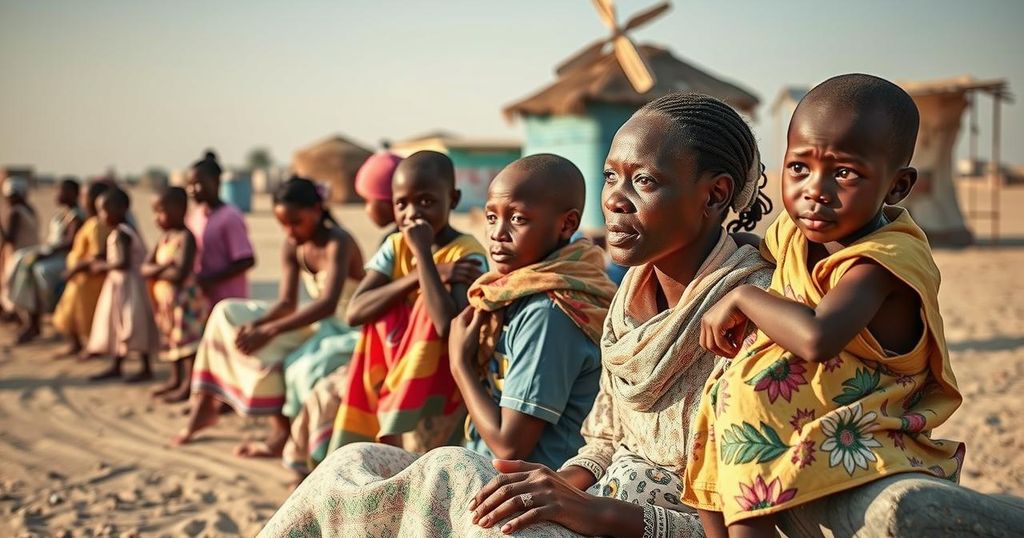Thousands of South Sudanese have fled from violence in the Tambura region, prompting UNMISS intervention. While calm has returned to Western Equatoria State, efforts to prepare for elections in 2026 are underway in Northern Bahr el Ghazal State, with political and civil leaders working to create a secure environment for civic engagement. The government has postponed elections to address necessary foundational processes.
Recent reports indicate that thousands of South Sudanese individuals have been compelled to flee their homes in Western Equatoria State due to violence in the Tambura region. The United Nations Mission in South Sudan (UNMISS) confirmed that, following a period of unrest, a sense of calm has been restored. Many displaced persons had taken refuge near temporary UNMISS installations, highlighting the ongoing humanitarian challenges. One affected resident, Monica Zeferina, recounted her harrowing experience of hiding for nearly two weeks and articulated the dire transportation limitations that hindered her and other families from seeking safety.
UNMISS has pledged to closely monitor the situation and engage in efforts to contain violence in the region. Meanwhile, in another part of South Sudan, Northern Bahr el Ghazal State, political entities have united to establish an action plan aimed at ensuring free and fair elections scheduled for 2026. During a forum facilitated by UNMISS, key political parties and civil society organizations collaboratively signed an agreement to foster an inclusive political environment ahead of the elections, underscoring the importance of accessible civic engagement. Deputy Special Representative of the Secretary-General, Guang Cong emphasized that a transparent political space is vital for democratic activities.
Earlier in September, the South Sudanese government announced a postponement of the initially planned elections from December 2024 to December 2026, primarily due to the necessity of completing foundational processes such as a national census and the drafting of a permanent constitution. This marks the second postponement since South Sudan’s independence in 2011, prolonging the transitional period that commenced in February 2020.
The South Sudanese humanitarian crisis has persisted since the country’s independence in 2011, driven by ongoing internal conflict and power struggles. The United Nations has been actively involved in providing support and monitoring peace efforts within the nation, particularly through UNMISS, which facilitates humanitarian assistance and promotes peaceful transitions. The recurring violence in various states demonstrates the fragility of the situation, highlighting the urgency for political stability and civil engagement as the nation plans for future elections. As the government grapples with the logistics of governance and representation, the involvement of both political parties and civil society is critical in laying the groundwork for a more democratic trajectory.
In summary, the recent violence in the Tambura region of South Sudan has displaced thousands, necessitating humanitarian response efforts. UNMISS’s commitment to monitoring violence and facilitating political dialogue is crucial amid the ongoing turbulence. The collaborative effort among political parties and civil society in Northern Bahr el Ghazal State signals a pivotal step toward organizing free elections in 2026. However, the second delay in electoral processes underscores the complexities faced by the government in navigating the paths toward stable governance and peace.
Original Source: newscentral.africa






